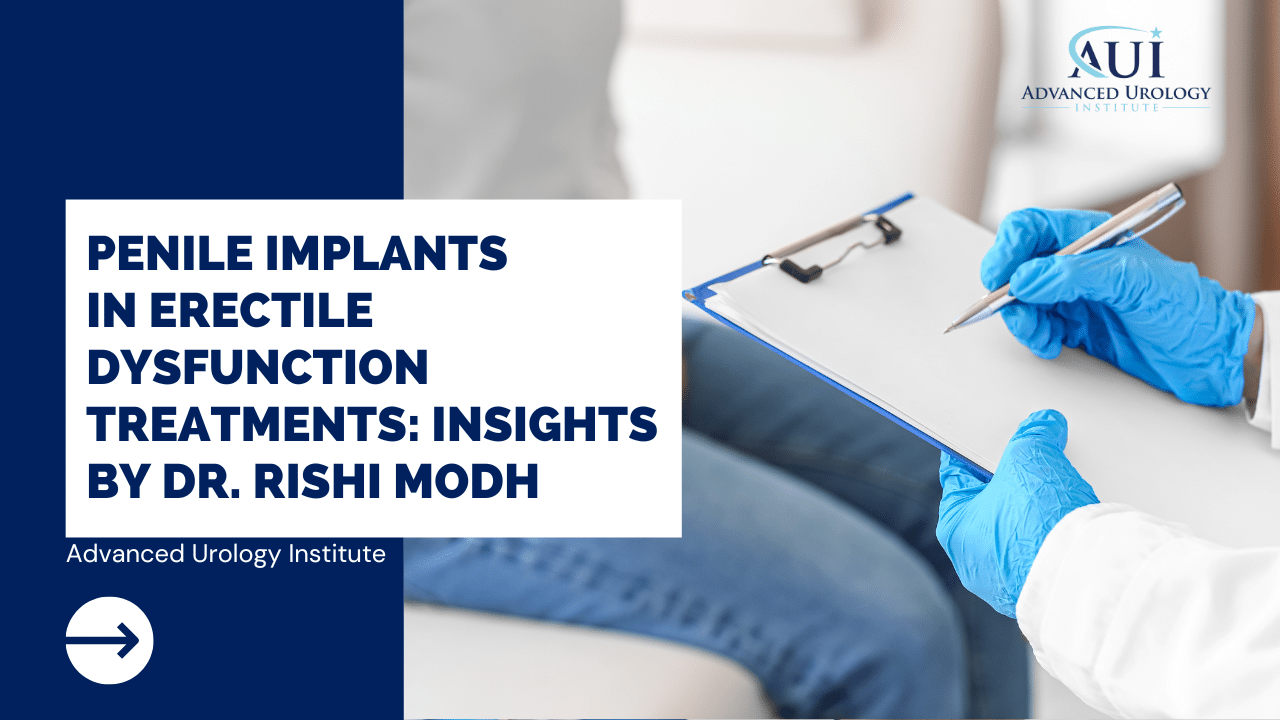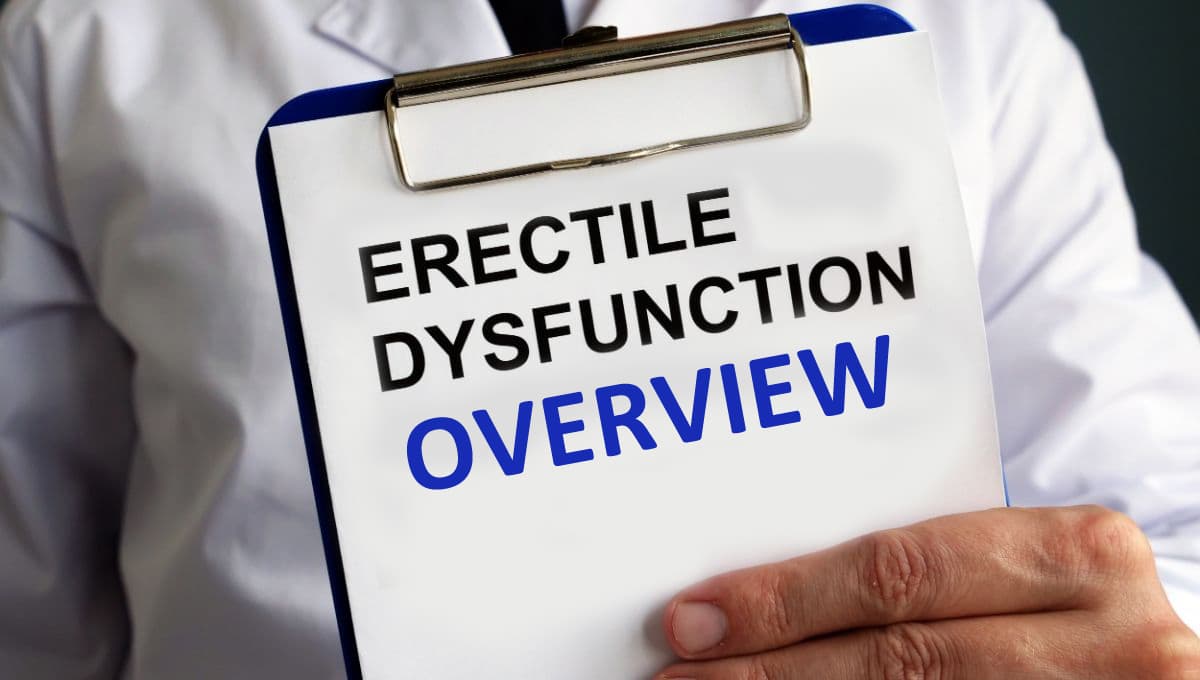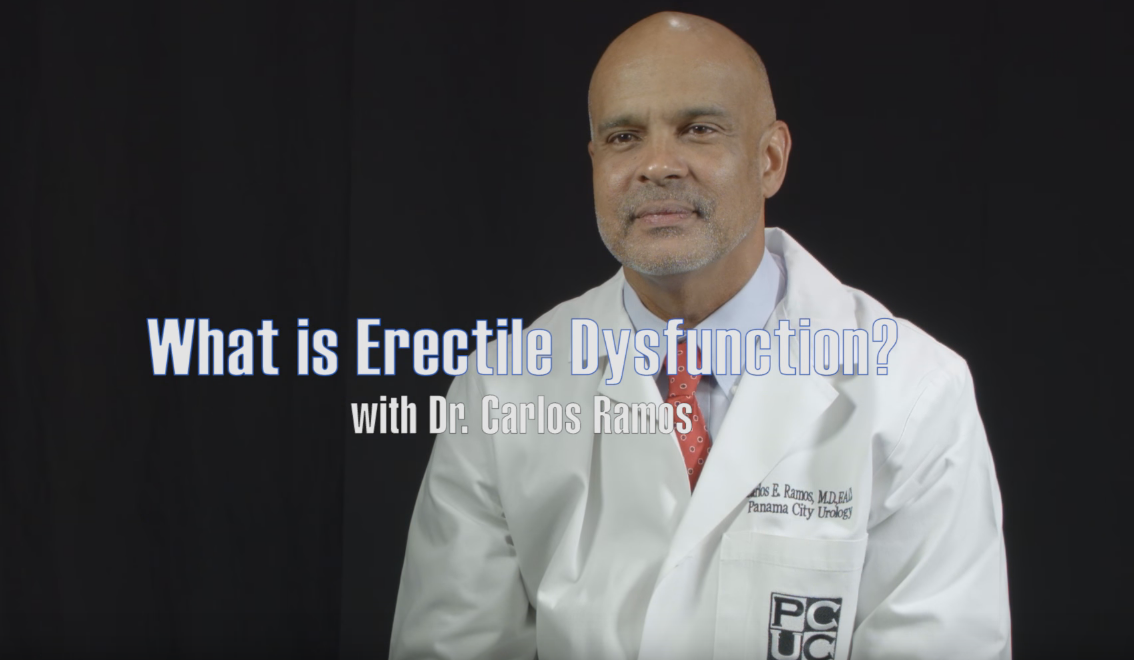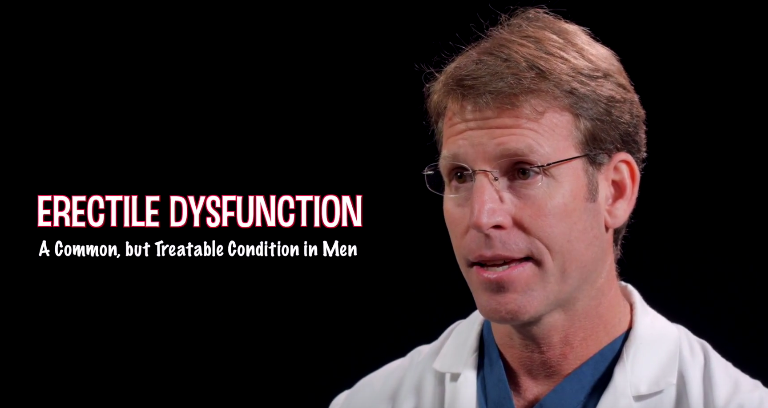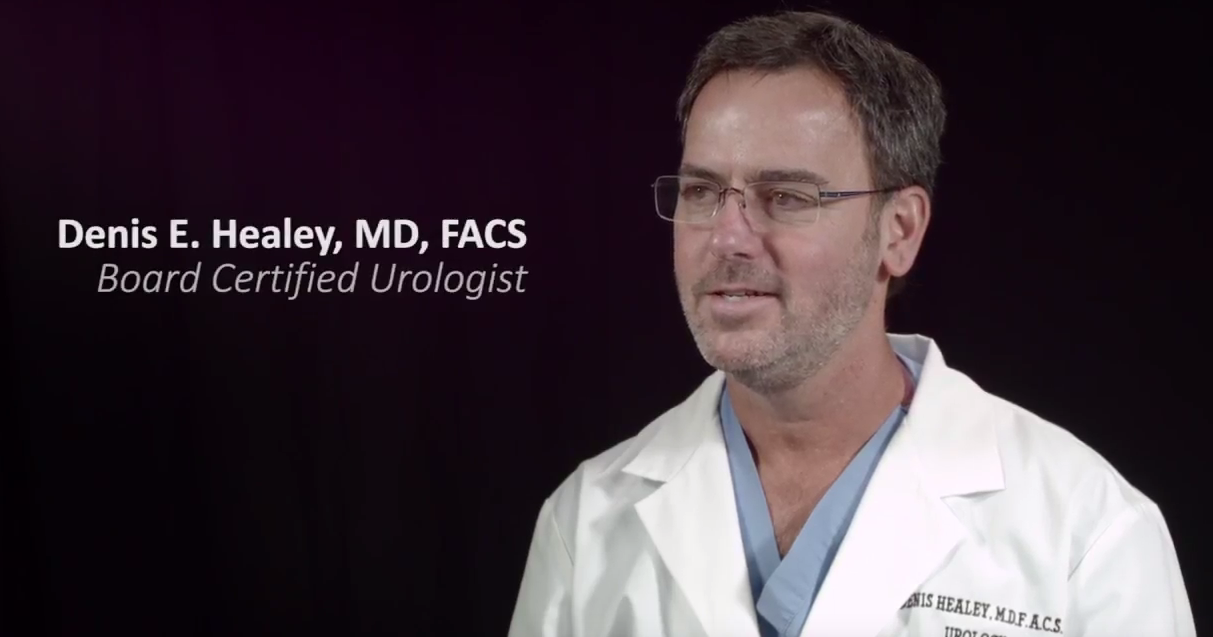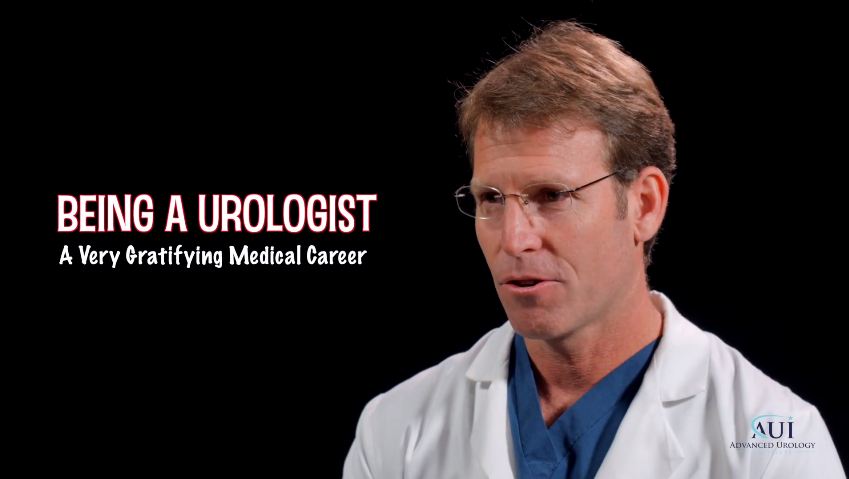Exploring Penile Implants in Erectile Dysfunction Treatments: Expert Insights from Dr. Rishi Modh. Learn about Innovative Treatments.
Continue readingDo You Treat People With ED
Well, yes—every day. At Advanced Urology Institute, we treat men with erectile dysfunction (ED) and achieve great results for our patients. Erectile dysfunction is a big issue for men today, regardless of their age. Up to half of all men experience some form of ED in their lifetime, with roughly 10% of men over 40 suffering severe forms of impotence.
What is erectile dysfunction?
Also called impotence, erectile dysfunction is the inability to regularly get or maintain an erection for satisfying sex. In general, an occasional problem should not be a cause for concern. In fact, it is normal to have trouble getting or keeping an erection for up to 20% of sexual encounters. But frequent trouble getting an erection indicates a medical problem. With ED, successful erections either become the exception more than the rule or they never happen.
 Some of the causes of ED include:
Some of the causes of ED include:
- Alcohol use, illicit drug use, or smoking
- Medications, such as for high blood pressure
- Diabetes
- High cholesterol
- Heart disease
- Obesity
- Blocked blood vessels
- Scar tissue inside the penis
- Sleep disorders
- Metabolic syndrome
- Anxiety, stress, or depression
- Emotional or relationship issues
Risk factors for erectile dysfunction include advanced age, diabetes, obesity, depression, cardiovascular disease, high blood pressure, low testosterone, high cholesterol and smoking.
What does treatment for ED involve?
Erectile dysfunction is a treatable condition. At Advanced Urology Institute, we offer several treatment options, generally beginning with the least invasive approach. We also give lifestyle advice that may help with overcoming the condition.
For instance, if your ED is due to inactivity, obesity, metabolic syndrome, high blood pressure or cardiovascular disease, we may recommend you engage in regular aerobic exercise to help reduce the symptoms. We may also recommend you quit smoking, minimize your alcohol intake and follow a healthy diet.
Treatments for ED include:
1. Phosphodiesterase type-5 (PDE5) inhibitors
PDE-5 medications are typically the first line of treatment we recommend for men with ED. They include Stendra (avanafil), Viagra (sildenafil), Cialis (tadalafil), and Levitra or Staxyn (vardenafil).
These oral medications work in a similar manner to boost the level of cGMP—a natural chemical in the body that promotes the widening of blood vessels following sexual arousal. In turn, more blood reaches the penis.
At the same time, these medicines enhance the relaxation of muscles of the penis in response to stimulation, hence increasing blood flow to the penis and allowing an erection.
2. Creams and injections
Sometimes we prescribe a topical Alprostadil cream as an alternative to the oral medications. The cream comes with a plunger and is applied to the tip of the penis and the surrounding skin 5-30 minutes before having sex.
At other times, we may prescribe penile injections as a treatment for ED. That is, we teach you how to inject a medicine at the base of your penis 5-20 minutes before sexual intercourse. After the injection, there will be increased blood flow to your penis and an erection will develop within 15 minutes.
3. Penis pumps (vacuum devices)
A penis pump (vacuum erection pump) is a tube that fits over the penis. A plastic container is placed over the penis and the pump draws air from the container to create a vacuum. The change in air pressure when the device is used causes blood to be drawn into the penis and triggers an erection.
Once the vacuum creates an erection, the retaining band is slid down the lower end of the penis and the pump is removed. An erection will typically last long enough for intercourse but the penis may be cold to the touch, and the rubber band may restrict ejaculation.
4. Penile implant (surgery)
We generally recommend surgery only when all other treatment options are not successful or not well tolerated. If that is the case, a penile implant (prosthesis) may help in achieving erections.
A penile implant is a medical device surgically placed into a penis to mimic the look and performance of a natural erection. The prosthesis involves an inflatable rod inserted in the middle of the penis, with a pump hidden in the scrotum. The pump is used to inflate the rod, which in turn causes an erection.
Penis pumps are custom-fit to your anatomy in a procedure that is performed carefully to ensure that the sensitivity of the penis and your ability to ejaculate are not adversely affected, allowing you to have a normal orgasm and great sexual encounters.
At Advanced Urology Institute, we recognize that erectile dysfunction is a common but very sensitive issue. That is why we provide a compassionate, patient-friendly approach to ED treatment to help men tackle it as soon as it starts. And because ED may also be a sign of a more serious medical condition, we encourage you to speak with a urologist as soon as possible to help you address the underlying condition and find the best treatment option.
Remember, the sooner you speak with your doctor about ED, the sooner you can go back to enjoying physical intimacy with your significant other. For more information about the diagnosis and treatment of erectile dysfunction, visit the Advanced Urology Institute website.
Erectile Dysfunction Overview
Erectile dysfunction (male impotence) is a man’s inability to achieve or maintain an erection with enough firmness to have satisfying sex. Occasional erectile dysfunction (ED) is common and many men experience it when undergoing some form of stress. But frequent ED can be a sign of serious health, emotional or relationship problems that require the attention of a professional.
How common is erectile dysfunction?
Roughly 30 million men in the United States have problems achieving or maintaining an erection. The frequency of ED increases with age, affecting only 5-40% of men in their 40’s and up to 50-80% of men over 70 years. However, while the risk of ED increases with age, the condition is not an inevitable consequence of aging. Good health is the key to a lifetime of good sexual function.
Who is at risk of erectile dysfunction?
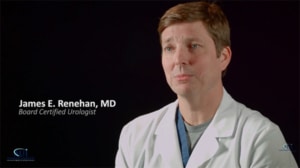 Apart from occurring frequently among the elderly, ED is often a consequence of poor emotional and physical health. It is common in men with high cholesterol, diabetes, obesity, cardiovascular disease, hypertension, prostate disease, anxiety, damage from surgery or cancer, injuries, stress, depression, performance anxiety, relationship problems, alcohol use, smoking, and drug use. Typically, ED is caused by vascular disease (such as atherosclerosis) that prevents blood supply to the penis, a neurological disorder (like multiple sclerosis) that cuts transmission of nerve impulses to the penis, chronic medical disorders such as Peyronie’s disease, stroke and diabetes, trauma, and operations for bladder, colon and prostate cancer which may affect blood supply to the penis. These risk factors may work singly or in combination.
Apart from occurring frequently among the elderly, ED is often a consequence of poor emotional and physical health. It is common in men with high cholesterol, diabetes, obesity, cardiovascular disease, hypertension, prostate disease, anxiety, damage from surgery or cancer, injuries, stress, depression, performance anxiety, relationship problems, alcohol use, smoking, and drug use. Typically, ED is caused by vascular disease (such as atherosclerosis) that prevents blood supply to the penis, a neurological disorder (like multiple sclerosis) that cuts transmission of nerve impulses to the penis, chronic medical disorders such as Peyronie’s disease, stroke and diabetes, trauma, and operations for bladder, colon and prostate cancer which may affect blood supply to the penis. These risk factors may work singly or in combination.
How is erectile dysfunction treated?
When you visit a urologist, the first step in the diagnosis of the problem is a thorough sexual, medical and psychosocial history. Physical examination with emphasis on the genitourinary, neurologic and vascular systems is performed. From the information gathered, the urologist may request hormone tests (testosterone, luteinizing hormone, and thyroid – stimulating hormone, prolactin and serum hormone-binding globulin), urinalysis, PSA (prostate-specific antigen), lipid profile, and serum chemistry. Functional tests such as prostaglandin E1 injection, formal neurologic testing, nocturnal penile tumescence testing and biothesiometry may be requested, together with imaging studies such as transrectal, testes and penile ultrasonography and angiography.
If erectile dysfunction is diagnosed, the doctor may recommend treatment depending on the cause and severity of the condition. For instance, the urologist may recommend sexual counseling when no organic causes can be established for the problem. Oral medications such as sildenafil, vardenafil, tadalafil or avanafil may be offered to relieve the problem. But for those not responding to oral medicines, the urologist may inject, implant or direct the topical application of drugs such as alprostadil, phentolamine or papaverine. In some cases, an external vacuum or constriction device may be recommended while for other patients hormone replacement therapy may be used to treat severe hypogonadism (lower-than-normal testosterone). Alternatively, the urologist may opt for surgery through procedures such as revascularization, placement of penile implant or surgical correction of venous outflow.
How is erectile dysfunction prevented?
- Eat a healthy, balanced diet that avoids saturated fats and increases the intake of vegetables, fruits and whole grains.
- Reduce cholesterol levels through exercise, medication and diet.
- Maintain a healthy body weight.
- Exercise regularly.
- Seek prompt treatment or professional help for conditions such as stress, depression, hypertension, heart disease and diabetes.
At Advanced Urology Institute, we recognize that effective treatment of erectile dysfunction involves a proper determination of the underlying cause and a frank discussion of both medical and non-medical options. This is why we have assembled an accomplished team of physicians, state-of-the-art facilities and a patient-centered system that responds to the unique needs of each patient. If you are experiencing a urological problem, make an appointment today. For more information, visit the Advanced Urology Institute website.
The Effectiveness of Erectile Dysfunction Treatments
Worried about your inability to get or maintain an erection? Stop worrying and visit your doctor for an open and honest chat. A urologist can help you find safe and effective treatment of erectile dysfunction that will enable you to approach any future dates with your partner with confidence. Urologists are experts in treating erectile dysfunction and other genitourinary issues, so do not be anxious about such a visit. In fact, you will be surprised to find that your doctor is probably seeing up to a half dozen men with ED every week.
Oral ED Medications
The first choice of treatment for ED is usually oral medications called phosphodiesterase inhibitors type 5 (PDEi-5). These drugs include the first-generation agents such as sildenafil (Viagra), vardenafil (Levitra) and tadalafil (Cialis), together with second-generation agents like mirodenafil (Mvix), iodenafil (Helleva), udenafil (Zydena) and avanafil (Stendra). With the drugs providing a normal, natural erection in 80-95 percent of men as long as there is sexual stimulation, they are the best option for many men with ED. They also deliver high efficacy rates and favorable safety levels.
Transurethral and Intracavernosal Injections
If you are unresponsive to oral drugs, your doctor will review your treatment and consider other options. The urologist may consider a transurethral injection with a drug called alprostadil. The doctor may go for this option if your penile nerves have been compromised and you need to bypass the neurological pathways responsible for an erection. Another option may be an intracavernous injection of papaverine, phentolamine, PGE1 or vasoactive intestinal peptide (VIP). The injections are a good treatment choice with 91-96 percent success rates and proven safety. These drugs may be combined for better efficacy.
Vacuum Constriction Devices
Vacuum erection devices also may be considered. But these are commonly offered to elderly patients who may only want occasional sexual intercourse. Younger men do not like these devices because of the unnatural feeling of the erections and the mechanical procedure necessary to produce the erections. You should discuss this option with your doctor and find out if the devices are ideal for you.
Surgical Therapies
When medical therapies fail, your urologist may recommend surgery. Surgical procedures are often the last option because of the cost, non-reversibility and invasiveness involved. There are two kinds of surgery for men with ED: penile prosthesis and penile revascularization. In penile prosthesis, the urologist inserts an inflatable or semi-rigid implant into the penis tissue. The success rate of penile prosthesis is 97 percent, but the implant must be replaced every 8-15 years. Penile revascularization is a surgical procedure to repair either venous ligation or arterial stenosis. Explore surgery with your doctor if the other options fail to work for you, but be sure to understand what is involved before you make a decision.
Non-Specific Interventions
Erectile dysfunction treatments may be accompanied by other interventions. For instance, psychotherapy is a noninvasive and highly effective intervention that is often combined with other therapies for a better success rate. Likewise, your urologist may recommend lifestyle modifications, such as increased physical activity, dietary changes, moderate alcohol consumption or a decision to stop smoking in order to improve your ED symptoms and minimize cardiovascular risk. If tests show that you have low testosterone, your doctor may recommend testosterone replacement therapy before you use ED-specific medications. If you are a younger, healthier man, testosterone therapy may just be what you need for enhanced sexual desire and harder erections.
At Advanced Urology Institute, we have established a multidisciplinary, compassionate and patient-centered approach to the treatment of erectile dysfunction. We prioritize the needs and expectations of our patients during treatment, educating them and providing a supportive environment that ensures shared decision-making. We also conduct meticulous follow-ups to identify any changes in the relationships, health and emotional status of our patients to optimize the efficacy of our treatments. If you are experiencing bothersome and embarrassing ED, visit one of our urologists for help. Get more information on the treatment of erectile dysfunction at the “Advanced Urology Institute” site.
5 Effective Treatment Options for Erectile Dysfunction
5 Effective Treatment Options for Erectile Dysfunction
There are several treatment options available for erectile dysfunction (ED), and the right one for an individual depends on the cause of the ED, age, health and lifestyle of the patient. In most cases, the use of oral medications such as Cialis, Viagra or Levitra is the recommended first option. Then, depending on the effectiveness and tolerance of the medication, other treatments may be tried. For example, microvascular surgery is recommended for patients with blood vessel leakage or blockage, while penile prosthesis is one effective alternative for those who fail to respond to non-surgical therapy or are not candidates for surgery.
Here is a look at 5 effective treatment options for erectile dysfunction:
1. Oral Medications: Phosphodiesterase-5 (PDE-5) inhibitors
Phosphodiesterase-5 (PDE-5) inhibitors, such as sildenafil (Viagra), tadalafil (Cialis), vardenafil (Levitra) and avanafil (Spedra), are some of the most widely used and highly effective medications for treating erectile dysfunction. The pills work by temporarily boosting the flow of blood to the penis. Sildenafil, sold as Viagra by Pfizer, is the most commonly prescribed pharmacological medicine for ED. Though it is available in different forms, Viagra takes 30-60 minutes to show effect and has a 4-hour duration. The drug only boosts blood flow to the penis and therefore sexual arousal and stimulation are necessary in order to have and maintain an erection. Tadalafil (Cialis) has effects lasting longer (up to 36 hours depending on the dose taken) and takes effect sooner (15-30 minutes). Tadalafil is also more selective in action and does not show the side effects of sildenafil and vardenafil. Avanafil (Spedra) and vardenafil (Levitra) show similar mechanism of action as sildenafil (Viagra) and only differ in duration of onset and length of effect.
2. Urethral Suppository (MUSE)
The use of a medicated urethral system for erection (MUSE) is considered when oral pills are not effective. The treatment involves placing a small medicated suppository in the penile urethra without using needles so that the suppository is absorbed to help produce an erection. The main advantage of this treatment option is that the suppository is applied locally by the patient or his partner, and has very few side effects. After the suppository is inserted into the urethra, sexual stimulation is necessary for increased blood flow to the penis. Patients opting for MUSE should have the first suppository application done in the urologist’s office to prevent potential complications such as decreased blood pressure, urethral bleeding, and continued and prolonged erections.
3. Penile Injections
The urologist may recommend penile injections when oral medications prove ineffective. And even though the idea of injecting the penis may be quite unappealing, the effectiveness and ease of injections make this a worthwhile option to consider. Apart from Caverject and Edex that have been prescribed by urologists for a while, other commonly injected medications are papaverine, phentolamine and alprosdid. Often, urologists recommend a blend of two or three medications for use in the injections. The blend, called a Trimix, ensures a synergistic effect of three medications, keeps the dose of every drug low to prevent adverse effects, and delivers a response rate of up to 90%.
4. Vacuum Pumps
Vacuum devices are recommended for patients who have only partial erections and find other treatments ineffective or intolerable. A vacuum device is made of a plastic cylinder connected to a pump and a constriction ring. Using a battery power or manual pressure to create suction around the penis in order to bring blood into it, a vacuum pump causes an erection which is maintained by a tourniquet of sorts that is placed around the base of the penis and an elastic rind which stops additional blood from flowing out of the engorged penis. Vacuum pumps are a relatively inexpensive, safe and easy to use treatment option for erectile dysfunction with minimal side effects. Erections induced using pumps generally last for about 30 minutes.
5. Penile Prosthesis and Penile Vascular Reconstructive Surgery
Surgery is considered as the last resort when all other treatment options fail. However, it may be the best option for young men seriously injured in their pelvic area (such as in a car accident) and men with significant anatomical problems with their penis. A penile prosthesis is an effective and more invasive option in which either a semi-rigid or inflatable implant is placed on the penis through surgery. The use of penile prosthesis has been proven to offer up to 85% patient-partner satisfaction rate. Penile vascular (venous or arterial) surgery is recommended for young men who have erectile dysfunction due to congenital or traumatic leakage of the penis. Penile venous surgery is performed to boost the trapping of blood in the penis, boosting a man’s capacity to get and maintain erections. On the other hand, penile arterial surgery creates a path of blood flow to the penis by correcting/bypassing blocked arteries.
For more information on effective treatments of erectile dysfunction, visit the Advanced Urology Institute website or make an appointment with a urologist today.
Erectile Dysfunction: Signs, Symptoms and Treatments for ED
Video: Providing Effective Patient Education
A man may have Erectile Dysfunction if he had failed to have an erection, or may have inconsistent ability to achieve an erection and lastly he can only sustain an erection briefly. Contact a urologist to treat your condition as soon as possible. [Read Full Article…]
Erectile Dysfunction, A Common, but Treatable Condition in Men – Dr Matthew Merrell
Video: Erectile Dysfunction, A Common, but Treatable Condition in Men – Dr Matthew Merrell
Erectile dysfunction (impotence) affects approximately 30 million men. This common problem can be a sign of a health condition that needs treatment such as poorly controlled diabetes or cardiovascular disease. Contact a urologist now and get treatment as soon as possible. [Read Full Article…]
Dr Denis Healey – Why Choose Urology?
Video: Becoming a Physician Assistant, Why did You Choose Urology – Jeanette Lain, PA C
Dr. Denis Healey expertise includes adult urology, Low T, ED, vasectomies, cancer, incontinence, laser surgery, infertility and stone disease. [Read Full Article…]
Being a Urologist, A Very Gratifying Medical Career – Dr Matthew Merrell
Video: Being a Urologist, A Very Gratifying Medical Career – Dr Matthew Merrell
Erectile Dysfunction – What Options Are Available?
Video: Erectile Dysfunction – What Options Are Available?
Often, the first thing that brings a patient through our doors is a difficulty with erections. This could be a symptom of another medical problem. [Read Full Article…]
Penile Prosthesis – Very High Satisfaction Rate
Video: Low Testosterone – Urologists Treat The Whole Patient
This procedure has a success rate of about 90%-95% five years after insertion. Most men rate the erection as shorter than their natural one. A penile prosthesis does not change the sensation on the skin of the penis or the ability to reach orgasm or ejaculate. Contact a urologist who knows this procedure. [Read Full Article…]
Why Shouldn’t You Feel Embarrassed About Erectile Dysfunction? Insights from Dr. Dinesh Rao
What Causes Erectile Dysfunction and How Can It Be Treated? Dr. Dinesh S. Rao Explains
What is Erectile Dysfunction? by Dr. Richard Roach
A man may have Erectile Dysfunction if he had failed to have an erection, or may have inconsistent ability to achieve an erection and lastly he can only sustain an erection briefly. Contact a urologist now and get treatment for this condition as soon as possible. [Read Full Article…]
What is Erectile Dysfunction? by Dr.Andy Sher
Erectile dysfunction (impotence) affects approximately 30 million men. This common problem can be a sign of a health condition that needs treatment such as poorly controlled diabetes or cardiovascular disease. Contact a urologist now and get treatment for this condition as soon as possible. [Read Full Article…]



